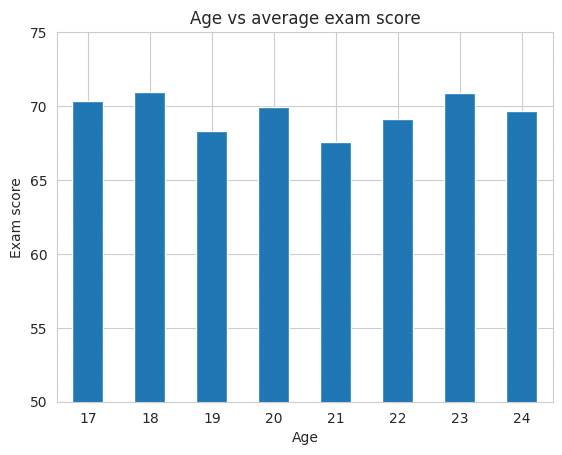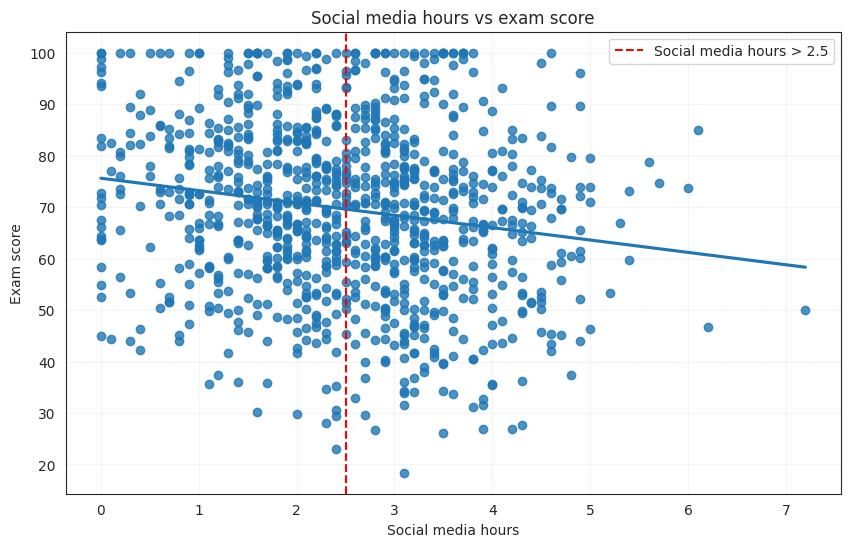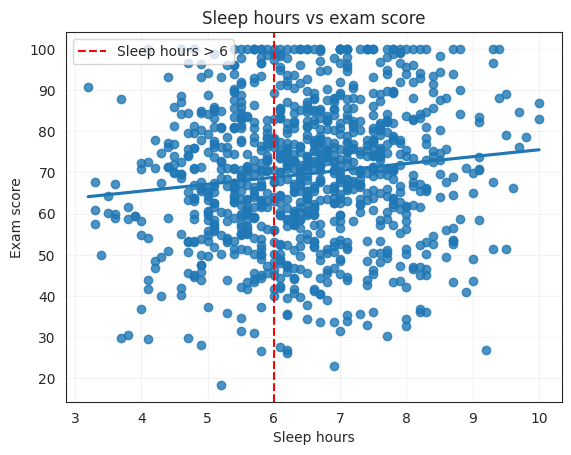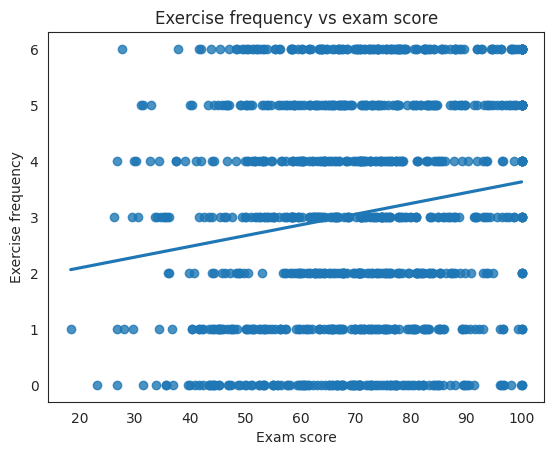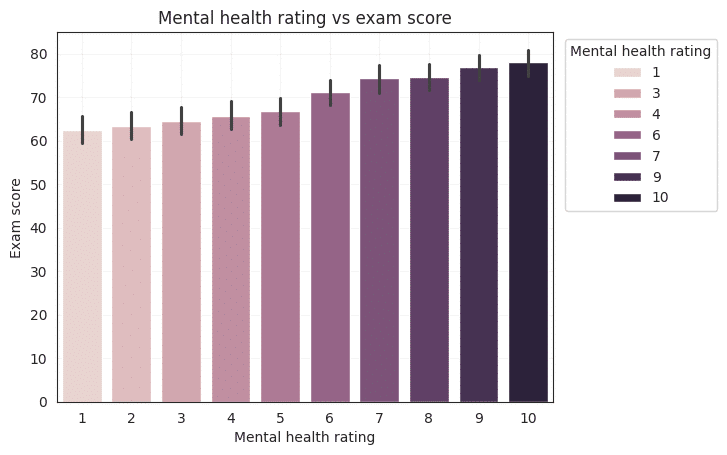- Kindly bear with us when you find things changing. We are working to make the site better! Wrapping up in a few days.
How Daily Habits Shape Student Performance: A Data-Driven Analysis of Study, Sleep, Social Media, and More
- 4 May 2025
- Posted by: Benedict Kiprono
- Category: Articles Data Storytelling

What really determines how well students perform in school? Is it how long they study, how much they sleep, or even how often they scroll through social media? At Jenga AI, we analyzed student behavior across several lifestyle factors—ranging from sleep patterns to internet usage—to uncover the key habits that separate high performers from the rest.
This article presents the major insights from that analysis and provides clear, actionable recommendations for students, educators, and parents seeking to boost academic outcomes through lifestyle improvements.
- Objectives
- Which students perform better based on the gender?
- Does study hours per day have an effect on student performance in exams?
- Does social media have an effect on student performance in exams?
- Does Netflix have an effect on student performance in exams?
- Does hours of sleep per day have an effect on student performance in exams?
- Does diet quality have an effect on student performance in exams?
- Does frequency of doing exercises have an effect on student performance in exams?
- Does parental education level have an effect on student performance in exams?
- Does internet quality have an effect on student performance in exams?
- Does mental health have an effect on student performance in exams?
- Does age has an effect on mental health rating?
- Key Insights from the Data
1. Gender and Academic Performance
-
Students identifying as “Other” gender performed the best on average (70.6%), followed by females (69.7%), while males recorded the lowest average score (69.3%).
-
Interestingly, those in the “Other” category also studied the longest per day (3.61 hours), suggesting a strong link between study time and academic success.
2. Study Hours and Performance
-
Students who studied at least 3 hours per day had an 82% chance of scoring over 70%.
-
This confirms that consistent daily study time is crucial for academic excellence.
3. Social Media and Netflix Consumption
-
Students spending less than 2.5 hours on social media daily had an 83% chance of scoring above 70%.
-
Likewise, those watching less than 2 hours of Netflix per day also had an 83% chance of scoring high.
-
Overuse of digital entertainment appears to negatively affect concentration and academic focus.
4. Class Attendance
-
Students who attended classes more than 75% of the time had a 91% chance of scoring 69% or above.
-
Attendance remains one of the most consistent predictors of success.
5. Sleep and Performance
-
Students sleeping 6 or more hours per night had a 12% better chance of scoring over 70% than those who didn’t.
-
Sleep supports memory, learning, and mental health.
6. Diet and Exam Scores
-
Students who consumed fair-quality food scored highest (70.4%), while those with poor diets scored the lowest (68.1%).
-
Nutrition directly affects cognitive performance and energy levels.
7. Exercise Frequency
-
Exercising at least 3 times a week led to a 16% improvement in overall performance.
-
Physical activity boosts brain function and stress management.
8. Parental Education
-
Surprisingly, students whose parents had a bachelor’s degree performed best (70.2%), while those whose parents held master’s degrees performed the worst (68.0%).
-
This could be influenced by parenting styles or student expectations.
9. Internet Quality and Distractions
-
Students with average internet quality scored highest (70.6%), while those with good quality internet scored lowest (68.6%).
-
The latter group also reported the highest hours on Netflix and social media, suggesting that stronger internet leads to more digital distractions.
10. Mental Health and Exam Performance
-
Students with a mental health rating above 4 performed 32% better than those with lower ratings.
-
Notably, all students with a rating of 6 or more scored above 70%.
-
Mental well-being is critical for sustained academic performance.
11. Age and Mental Health
-
-
Students under 20 years old reported better mental health ratings than older peers.
-
Those above 20 may face additional pressures—academic, social, or financial—that require mental health support.
-
- Data-Driven Recommendations
Based on the findings above, we recommend the following practices for students aiming to optimize their academic performance:
- Study for at least 4 hours daily to significantly improve academic results.
- Limit social media use to under 2.5 hours daily and Netflix to under 2 hours to minimize distraction.
- Sleep at least 6 hours every night to enhance memory, concentration, and mental health.
- Attend classes regularly—a minimum of 75% attendance is crucial.
- Maintain a fair-quality diet that supports sustained energy and focus.
- Exercise at least 3 times a week to support cognitive function and reduce stress.
- For students over 20, consider regular mental health counseling to manage academic and personal pressures.
- Be mindful of internet use—even high-speed internet can be counterproductive if it leads to excess entertainment consumption.
- Charts
- Want to Build Projects Like This?
Join our community and start learning Data Analytics, Machine Learning, and more, from zero to career-ready.
Leave a Reply Cancel reply
Need help? Our team is just a message away

